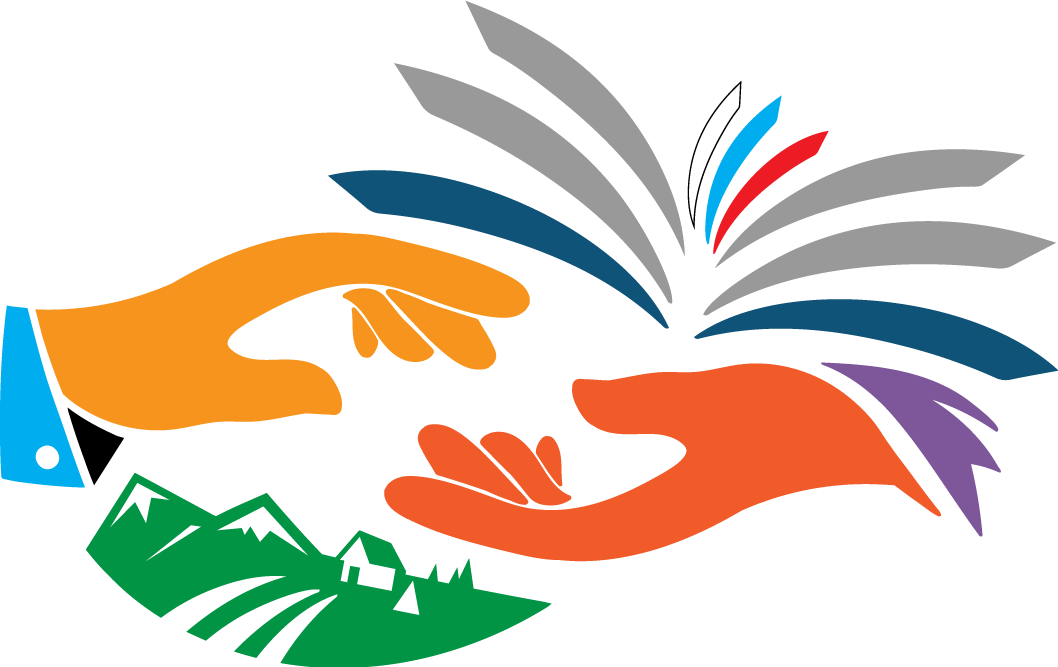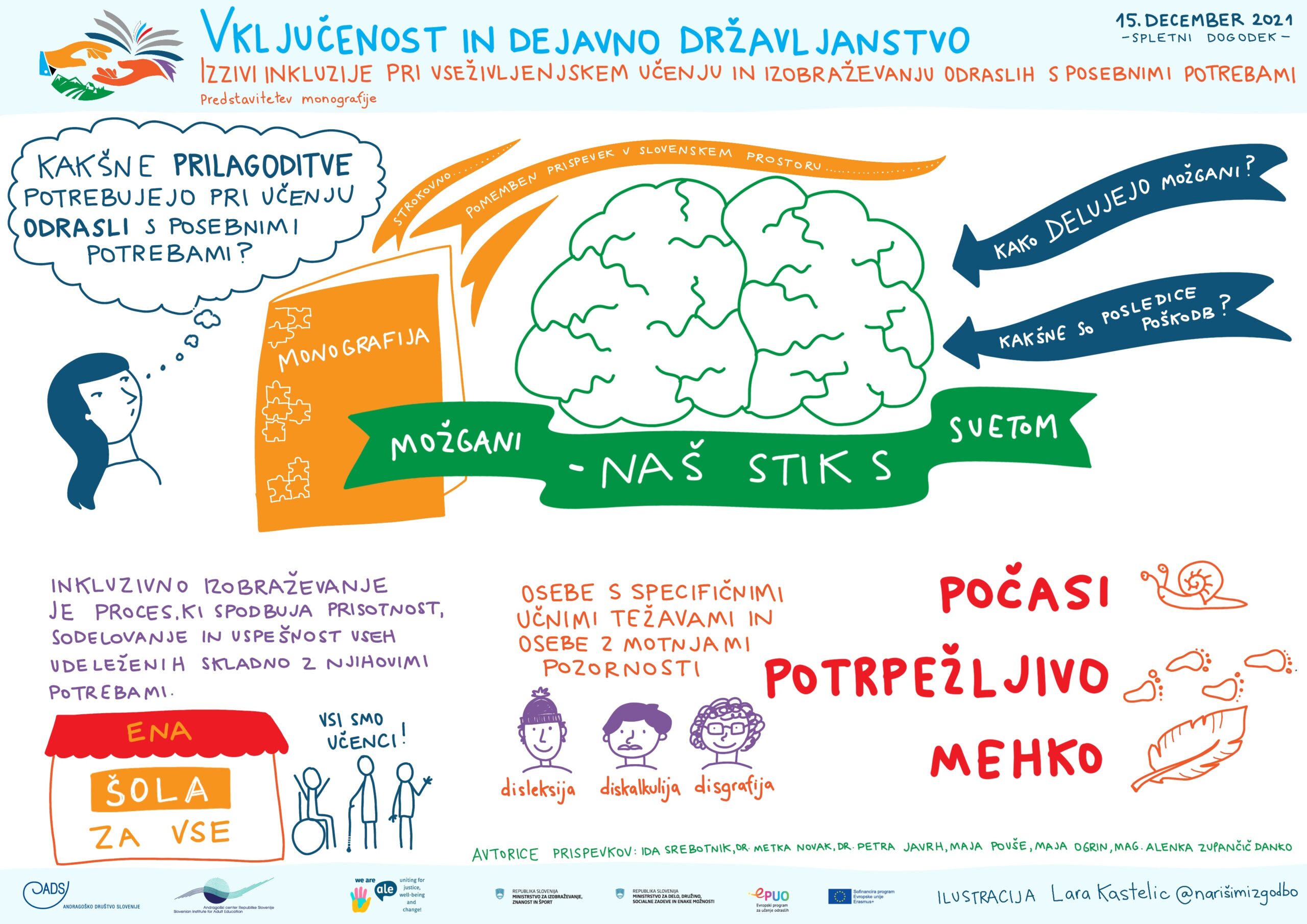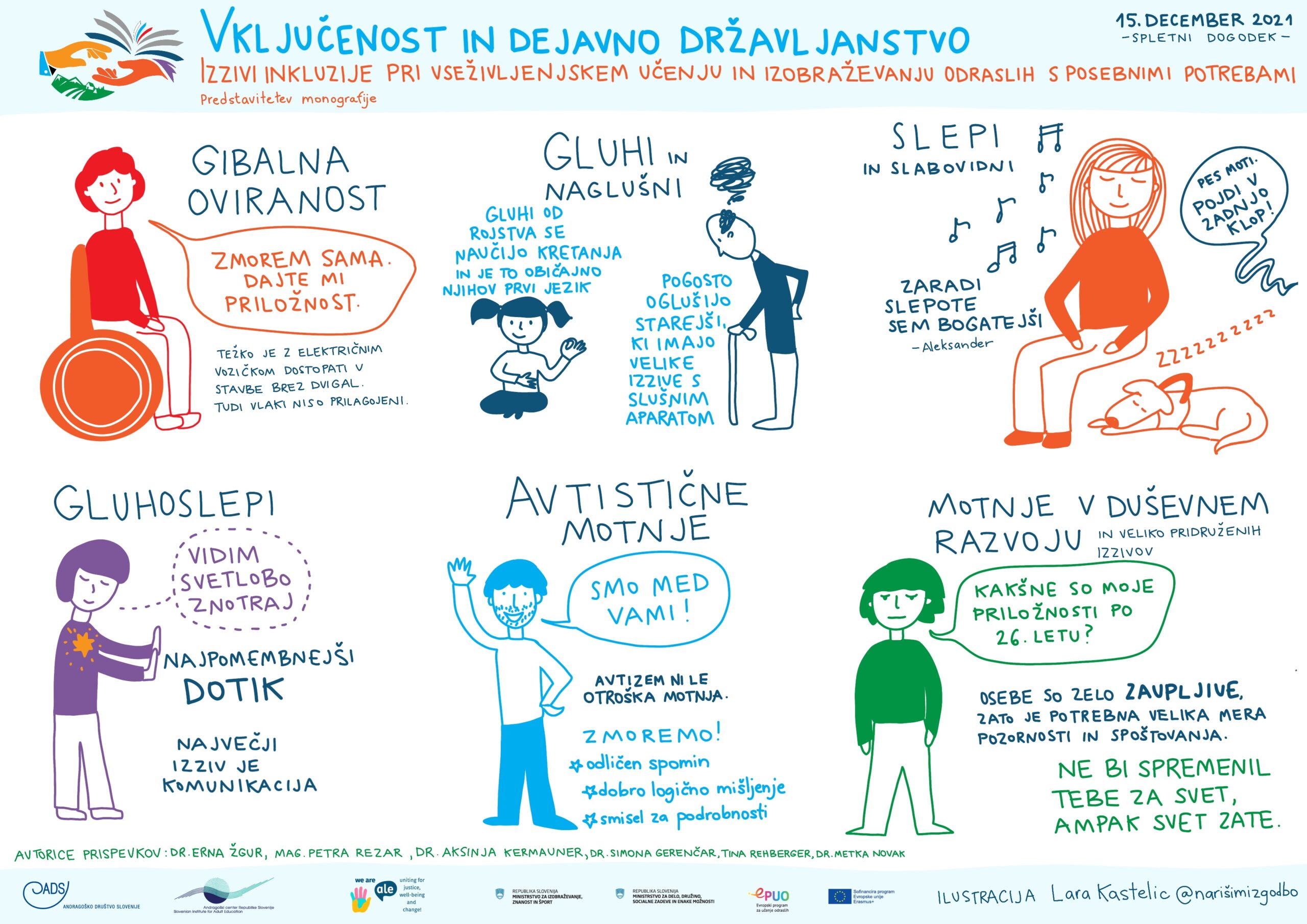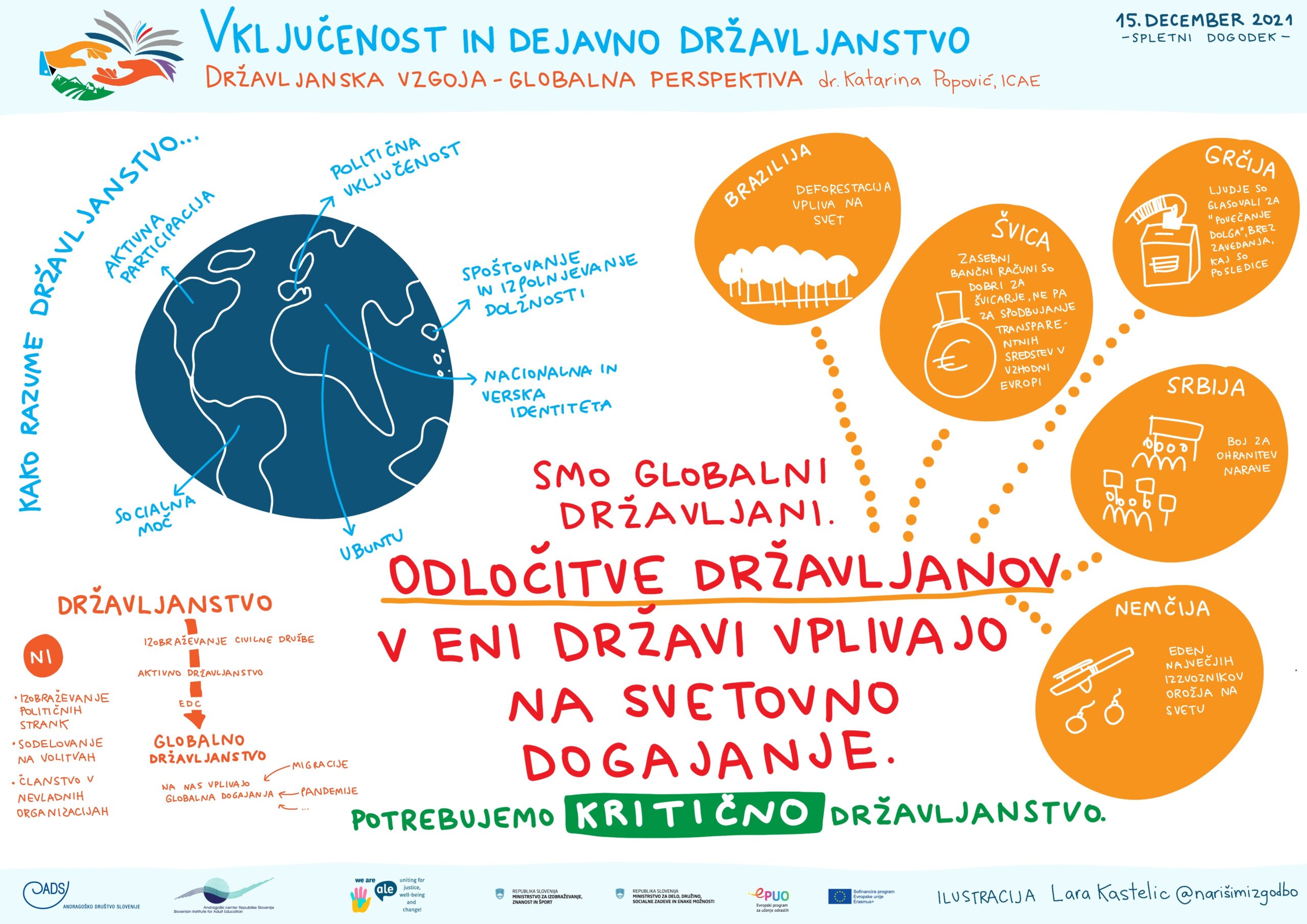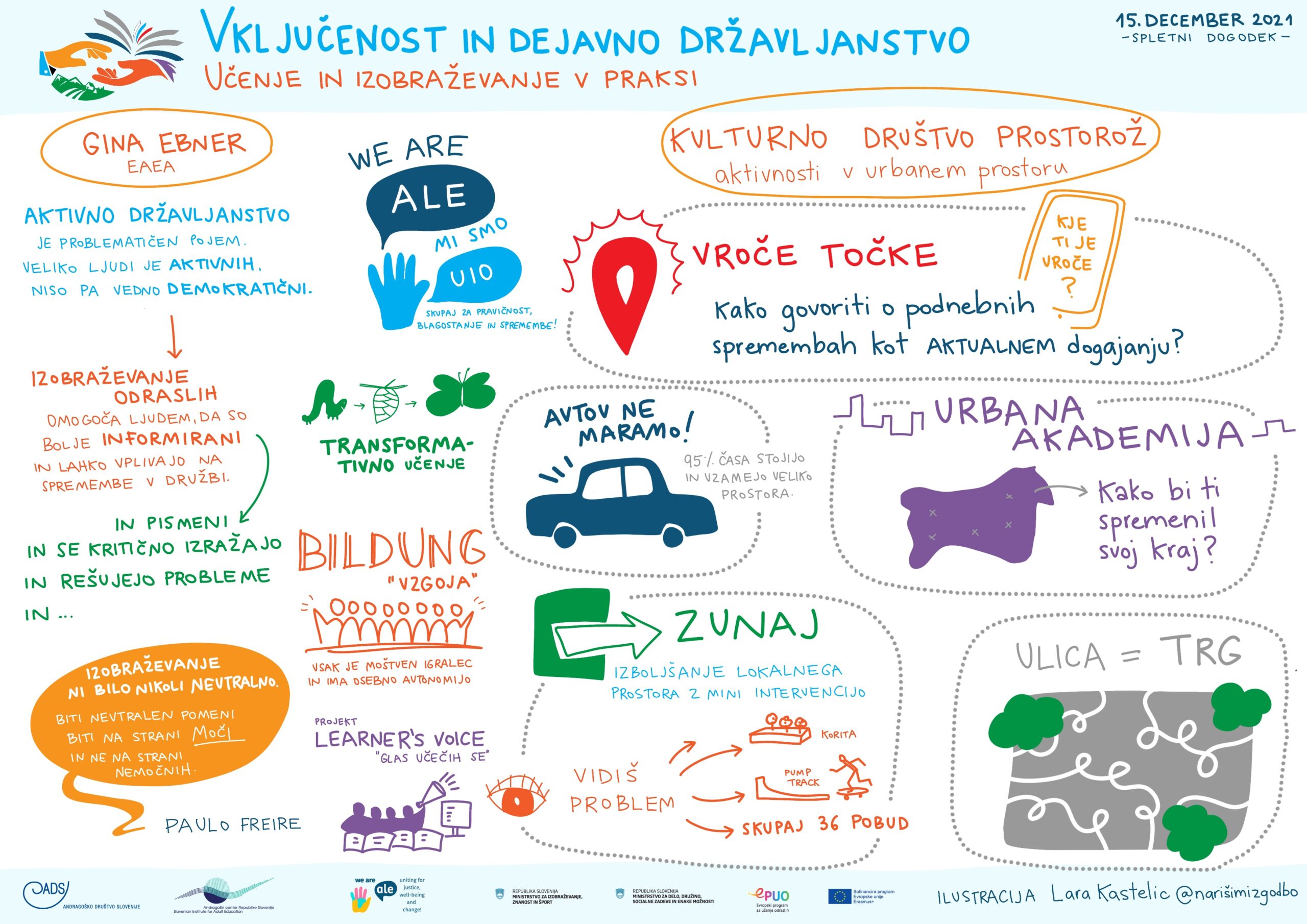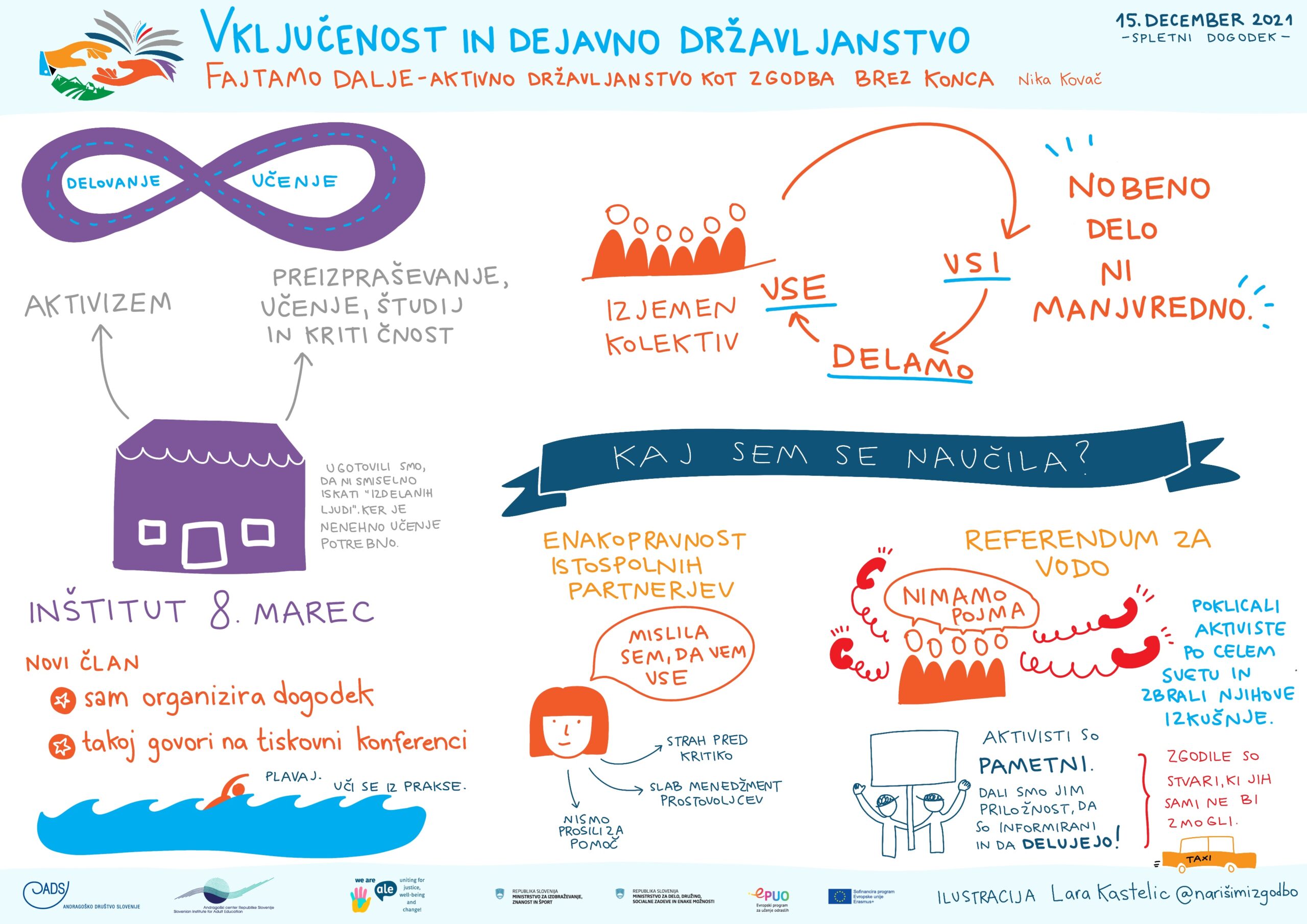
Inclusion and active citizenship can be perceived as two separate issues, but we must consider their close intertwinement. What they have in common is, among other things, that lifelong learning and education have been shown to contribute to a more inclusive society and greater involvement of individuals in democratic processes.
When talking about inclusion, we often think only of the vulnerable, the so-called socio-economically marginalised target groups – migrants and members of minorities, individuals without education and/or work, young people leaving school early and people discriminated against based on gender or age as well as people with disabilities. However, it is not just the low level of education or skills acquired in other manners and the consequent risk of poverty. Physical health, emotional-relational aspects, exclusion and loneliness and other dimensions of mental health are also important. Forms of deprivation tend to overlap, as do their consequences.
Strongly affected by the covid-19 epidemic, the vulnerability nowadays has spread to almost all population segments. Therefore, the slogan ‘leave no one behind’ is more relevant and urgent than ever before. It calls for a multidisciplinary, comprehensive approach that provides more equal access to social goods and inclusion based on mutual respect for diversity. Therefore, it makes sense to build bridges between education, social affairs, work, health, culture and other sectors of public life.
The first part of this EAAL forum addressed the challenges of the inclusion of people with special needs in adult education or lifelong learning. For this purpose, the Slovenian Institute for Adult Education (SIAE) cooperated with the Andragogical Society of Slovenia (ADS), which conducted research and prepared a monograph on this topic.
Active citizenship and related civic education are concepts also intended to increase the involvement of vulnerable target groups, but that is not all there is to it. The key is to build a democratic society based on universal human values and rights while respecting different national, political, cultural, religious and other backgrounds. Ideally, each individual – the so-called good citizen – would participate in fair democratic decision-making on matters for the common good of all, which ensure the healthy, sustainable and democratic development of the individual, the community and society as a whole.
We have already touched upon the importance of active citizenship in the previous five forums on migration and the challenges of multiculturalism, digital and green transformation, future of work and skills and ageing society.
At this forum, we learnt about the global and European aspects of civic education, the activities of the Prostorož cultural association, a non-profit urban studio that connects people with public space and people with each other through space, and an example of a young active citizen Nika Kovač.
The event took place on 15 December 2021 in an online version (Zoom).
Video
Presentation of the monograph: Challenges of inclusion in lifelong learning and education of adults with special needs
Civic education – a global perspective (Dr Katarina Popović)
Can we transform the future? ALE and democracy (Gina Ebner)
Examples of excellent practice: Cultural society Prostorož (Vesna Skubic and Zala Velkavrh)
et’s continue fighting – active citizenship as an endless story (Nika Kovač)
Full recording of the event (English translation)
Graphic harvest
(Lara Kastelic)
Programme
Part 1: On the inclusion of adults with special needs
9:00–10:30
Presentation of the monograph: Challenges of inclusion in lifelong learning and education of adults with special needs
Moderator: Ida Srebotnik, President of the Andragogical Society of Slovenia that published the monograph and co-editor of the monograph
Authors of presentations:
- Dr Metka Novak, Education, Work and Care Centre (CUDV) Draga, What is inclusion?
- Dr Petra Javrh, Slovenian Institute for Adult Education and Department of Pedagogy and Andragogy, Faculty of Arts, University of Ljubljana, Challenges of Inclusion and Education of Adults with Special Needs
- Maja Povše, University Rehabilitation Institute (URI) Soča, Ljubljana, Our Brains – Source of Life
- Maja Ogrin, URI Soča, Ljubljana, People with Acquired Brain Damage or Injury
- Alenka Zupančič Danko, MSc, Counseling Centre for Children and Adolescents Maribor, People with Specific Learning Difficulties and People with Attention Deficit and/or Hyperactivity Disorder
- Dr Aksinja Kermauner, Faculty of Education, University of Primorska, People with Visual Impairment or Blindness
- Petra Rezar, MSc, Institute for the Deaf and Hard of Hearing Ljubljana, People with Deafness or Hearing Impairment
- Dr Simona Gerenčer, Faculty of Social Work in Ljubljana, The Deafblind Association of Slovenia DLAN, People with Deafblindness
- Tina Rehberger, Division for Autism and Developmental Disorders, University Medical Centre Ljubljana, People with Autistic Disorders
- Dr Metka Novak, CUDV Draga, People with Intelectual Disabilities
- Dr Erna Žgur, Faculty of Education, University of Ljubljana, People with Physical Impairment
- Dr Božidar Opara, reviewer of the monograph, University of Primorska
Representatives of persons with special needs:
- Špela Sanabor, BSc in Library and Information Science, a person with physical impairment
- Aleksander Novak, a musician, a visually impaired person
Discussion
10:30–10:45
Break
Part 2: On active citizenship
10:45–12:30
Civic education – a global perspective, Dr Katarina Popović, International Council for Adult Education – ICAE
Can we transform the future? ALE and democracy, Gina Ebner, European Association for the Education of Adults – EAEA
Examples of excellent practice: Cultural society Prostorož, Vesna Skubic and Zala Velkavrh, Prostorož
Let’s continue fighting – active citizenship as an endless story, Nika Kovač, 8 March Institute
Discussion
Moderator: Zvonka Pangerc Pahernik, MSc, SIAE
Interpretation from English into Slovenian and vice versa as well as into sign language was provided
More information:
- Zvonka Pangerc Pahernik, Slovenian Institute for Adult Education (zvonka.pangerc.pahernik@acs.si)

